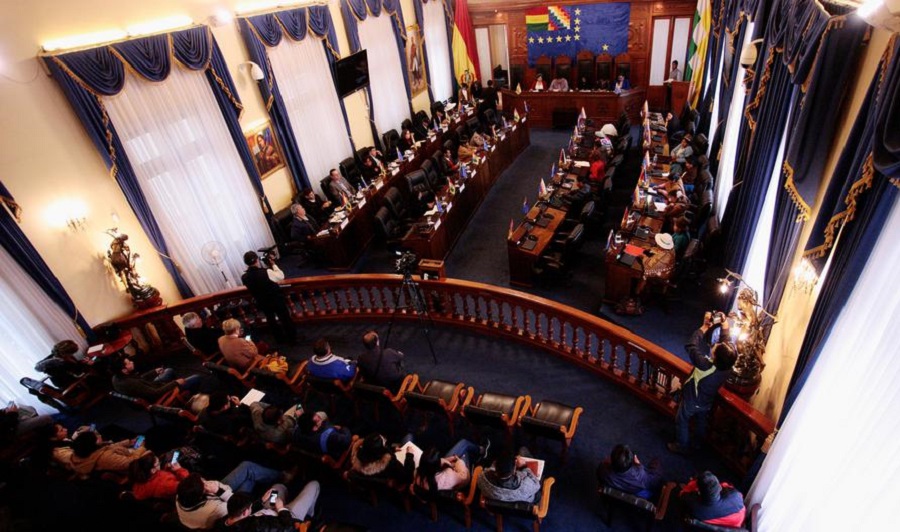RIO DE JANEIRO, BRAZIL – The bill passed by the Chamber of Deputies last Friday (17), with the majority of the ruling Movimiento al Socialismo (MAS), has sparked criticisms from international trade associations and the media, although the government has reiterated that the proposal which has now been sent to the Senate is within the Constitution and complies with international regulations.
CRITICISM FROM THE OPPOSITION
Comunidad Ciudadana deputy Carlos Alarcón pointed out that the law “is a step towards creating a police state,” as it grants “extraordinary powers” to the Financial Investigations Unit (UIF), the Prosecutor’s Office, the Ministry of Justice and the Attorney General’s Office, bodies whose actions he considers “political in nature.”

These comments refer to the ban to evoke reservation, secrecy or confidentiality whenever the FIU requests any information, something which is believed to affect journalistic work, or the role of the Ministry of Justice and the Attorney General’s Office, which have “active participation in criminal proceedings already in progress.”
With respect to the Prosecutor’s Office, it empowers prosecutors to preventively seize assets and retain funds before a judge orders their execution, among other aspects that have been challenged.
Meanwhile, Creemos noted that Trade and Property Rights registries are used as a means “to reinforce the political persecution of the opposition and of any citizen who thinks differently,” said deputy Edwin Bazán.
He also made an “urgent call to civil society” to demonstrate against this bill and other Government measures which, according to him, have traits of “totalitarianism.”
GOVERNMENT’S EXPLANATION
“The law that has been passed in great detail in the Chamber of Deputies does not violate the State’s Political Constitution nor does it contain provisions that affect freedom of expression,” said Vice Minister of Pensions Ivette Espinoza, in La Paz.
Espinoza pointed out that the regulation “does not apply to journalists and reporters,” and therefore considered it unnecessary to establish an exception “to a sector that is not contemplated in the regulation.”
The official explained that the main goal cites similar measures implemented in other countries and that they seek to ensure that Bolivia’s regulations comply with “international standards” based on the Financial Action Task Force’s (FATF) recommendations.
The Vice Minister emphasized that financial operations “enjoy the right of confidentiality except in legal proceedings where financial crimes are presumed to have been committed,” given that current laws already establish “when confidentiality is lifted.”
The law passed by the Chamber of Deputies last Friday was also criticized by journalists’ associations which consider that one of its articles seeks to suppress press confidentiality, in addition to “prevent journalism from investigating mismanagement” of public funds.
Bolivia’s Chamber of Exporters said that the sector is “concerned about some aspects that could violate several rights” such as the investigation of personal accounts without the need of a court order.

